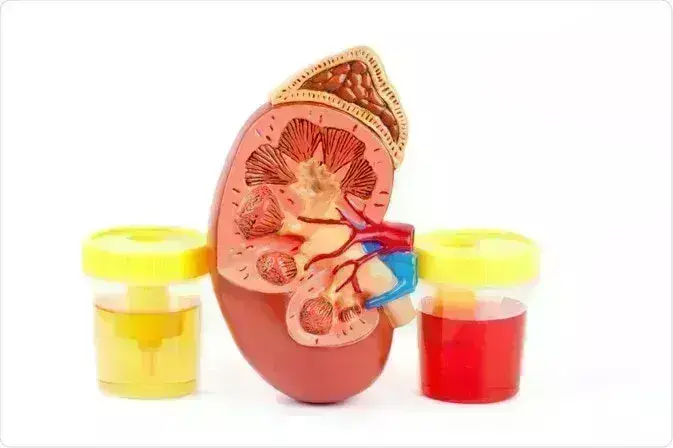- Home
- Medical news & Guidelines
- Anesthesiology
- Cardiology and CTVS
- Critical Care
- Dentistry
- Dermatology
- Diabetes and Endocrinology
- ENT
- Gastroenterology
- Medicine
- Nephrology
- Neurology
- Obstretics-Gynaecology
- Oncology
- Ophthalmology
- Orthopaedics
- Pediatrics-Neonatology
- Psychiatry
- Pulmonology
- Radiology
- Surgery
- Urology
- Laboratory Medicine
- Diet
- Nursing
- Paramedical
- Physiotherapy
- Health news
- Fact Check
- Bone Health Fact Check
- Brain Health Fact Check
- Cancer Related Fact Check
- Child Care Fact Check
- Dental and oral health fact check
- Diabetes and metabolic health fact check
- Diet and Nutrition Fact Check
- Eye and ENT Care Fact Check
- Fitness fact check
- Gut health fact check
- Heart health fact check
- Kidney health fact check
- Medical education fact check
- Men's health fact check
- Respiratory fact check
- Skin and hair care fact check
- Vaccine and Immunization fact check
- Women's health fact check
- AYUSH
- State News
- Andaman and Nicobar Islands
- Andhra Pradesh
- Arunachal Pradesh
- Assam
- Bihar
- Chandigarh
- Chattisgarh
- Dadra and Nagar Haveli
- Daman and Diu
- Delhi
- Goa
- Gujarat
- Haryana
- Himachal Pradesh
- Jammu & Kashmir
- Jharkhand
- Karnataka
- Kerala
- Ladakh
- Lakshadweep
- Madhya Pradesh
- Maharashtra
- Manipur
- Meghalaya
- Mizoram
- Nagaland
- Odisha
- Puducherry
- Punjab
- Rajasthan
- Sikkim
- Tamil Nadu
- Telangana
- Tripura
- Uttar Pradesh
- Uttrakhand
- West Bengal
- Medical Education
- Industry
Microscopic hematuria may predict all-cause mortality in patients with hypertensive crisis

Microscopic hematuria was a significant predictor of all-cause mortality in patients with hypertensive crisis suggests a recent study published in the Journal of Nephrology
Microscopic hematuria is associated with an increased risk of developing chronic kidney function impairment and even death. However, data on the long-term mortality risk associated with microscopic hematuria among patients with the hypertensive crisis are scarce. We hypothesized that microscopic hematuria at initial presentation in patients with the hypertensive crisis would be associated with increased long-term mortality.
This retrospective study included patients admitted to the emergency department between 2016 and 2019 for hypertensive crisis (systolic blood pressure ≥ 180 mmHg or diastolic blood pressure ≥ 110 mmHg). Microscopic hematuria was defined as ≥ 3 red blood cells per high-power field on microscopic evaluation of urine.
The results of the study are:
- Among 3595 patients, 1359 (37.8%) had microscopic hematuria.
- The 3-year all-cause mortality in patients with and without microscopic hematuria was 25.5% and 16.3%, respectively.
- After adjusting for confounding variables, patients with microscopic hematuria showed a significantly higher risk of 3-year all-cause mortality than patients without microscopic hematuria.
- In a subgroup analysis based on the presence of proteinuria, microscopic hematuria was a significant predictor of all-cause mortality in patients without proteinuria but not in patients with proteinuria.
Thus, Microscopic hematuria was a significant predictor of all-cause mortality in patients with hypertensive crisis. The study suggests that microscopic hematuria can be a useful prognostic marker and may permit early detection of patients with an increased risk of death. Clinicians in the emergency department should consider screening for kidney function using urine analysis during the initial assessment of patients with hypertensive crisis.
Reference:
Yu, Mi-Yeon, et al. "Association of Microscopic Hematuria With Long-term Mortality in Patients With Hypertensive Crisis." Journal of Nephrology, 2022.
Keywords:
Microscopic hematuria, significant, predictor, all-cause, mortality, patients, hypertensive crisis, Yu MY, Park JK, Kim BS, Kim HJ, Shin J, Shin JH, Journal of Nephrology
Dr. Shravani Dali has completed her BDS from Pravara institute of medical sciences, loni. Following which she extensively worked in the healthcare sector for 2+ years. She has been actively involved in writing blogs in field of health and wellness. Currently she is pursuing her Masters of public health-health administration from Tata institute of social sciences. She can be contacted at editorial@medicaldialogues.in.
Dr Kamal Kant Kohli-MBBS, DTCD- a chest specialist with more than 30 years of practice and a flair for writing clinical articles, Dr Kamal Kant Kohli joined Medical Dialogues as a Chief Editor of Medical News. Besides writing articles, as an editor, he proofreads and verifies all the medical content published on Medical Dialogues including those coming from journals, studies,medical conferences,guidelines etc. Email: drkohli@medicaldialogues.in. Contact no. 011-43720751


